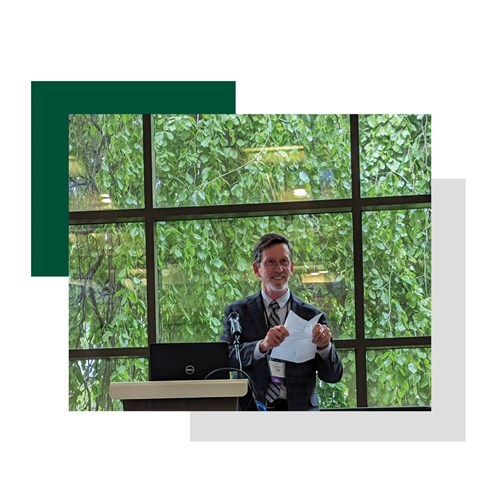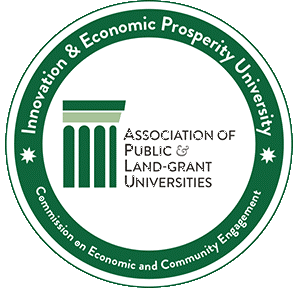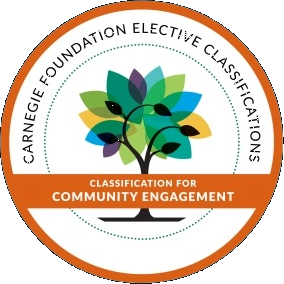June 4, 2024
MSU’s McNall Recognized for Outstanding Service to Michigan Association for Evaluation
Contact: Emily Springer, Communication Manager, Communication and Information Technology, University Outreach and Engagement, sprin116@msu.edu

Miles McNall receives 2024 Service Award by the Michigan Association for Evaluation
EAST LANSING, MI —Miles McNall, director for community-engaged research in the Office for Public Engagement and Scholarship (OPES), was recently recognized with the 2024 Service Award by the Michigan Association for Evaluation (MAE), a local affiliate of the American Evaluation Association (AEA).
The mission of MAE is to provide a forum for professional evaluators in Michigan to network, exchange ideas and knowledge, and participate in professional development activities that promote excellence in the field of evaluation.
The MAE Service Award is given to an individual who has made a significant effort on behalf of MAE to enhance operational functions, obtain financial support, and provide educational opportunities for MAE members.
In announcing the award, MAE president-elect Krystin Martens praised McNall for his leadership and service as a member and past president of the MAE board.
Martens highlighted McNall’s leadership, organization, and approachable stance at the onset of the COVID-19 pandemic when all programming moved to a virtual platform. He also oversaw the development of the June 2020 MAE Anti-Racist Agenda Statement, which led to the adoption of the MAE Diversity, Equity, Inclusion, and Access Statement and Definitions.
“The Service Award is well-deserved and well-earned,” said Kwesi Brookins, vice provost for University Outreach and Engagement (UOE). “We are thrilled to see Miles being recognized for his contributions to the evaluation profession in our state, and grateful to have him leading competitive programming in UOE for scholars interested in university-community partnerships.”
McNall has 25 years of experience with the evaluation of health and human service programs and 17 years of experience supporting faculty, staff, and students in their community-engaged scholarship. He has conducted evaluations of a wide variety of interventions including HIV/AIDS prevention and care programs, comprehensive community initiatives, school-based health centers, intensive home-based treatment services for children with severe emotional disturbances, and systems change initiatives in early childhood and youth mental health systems.









